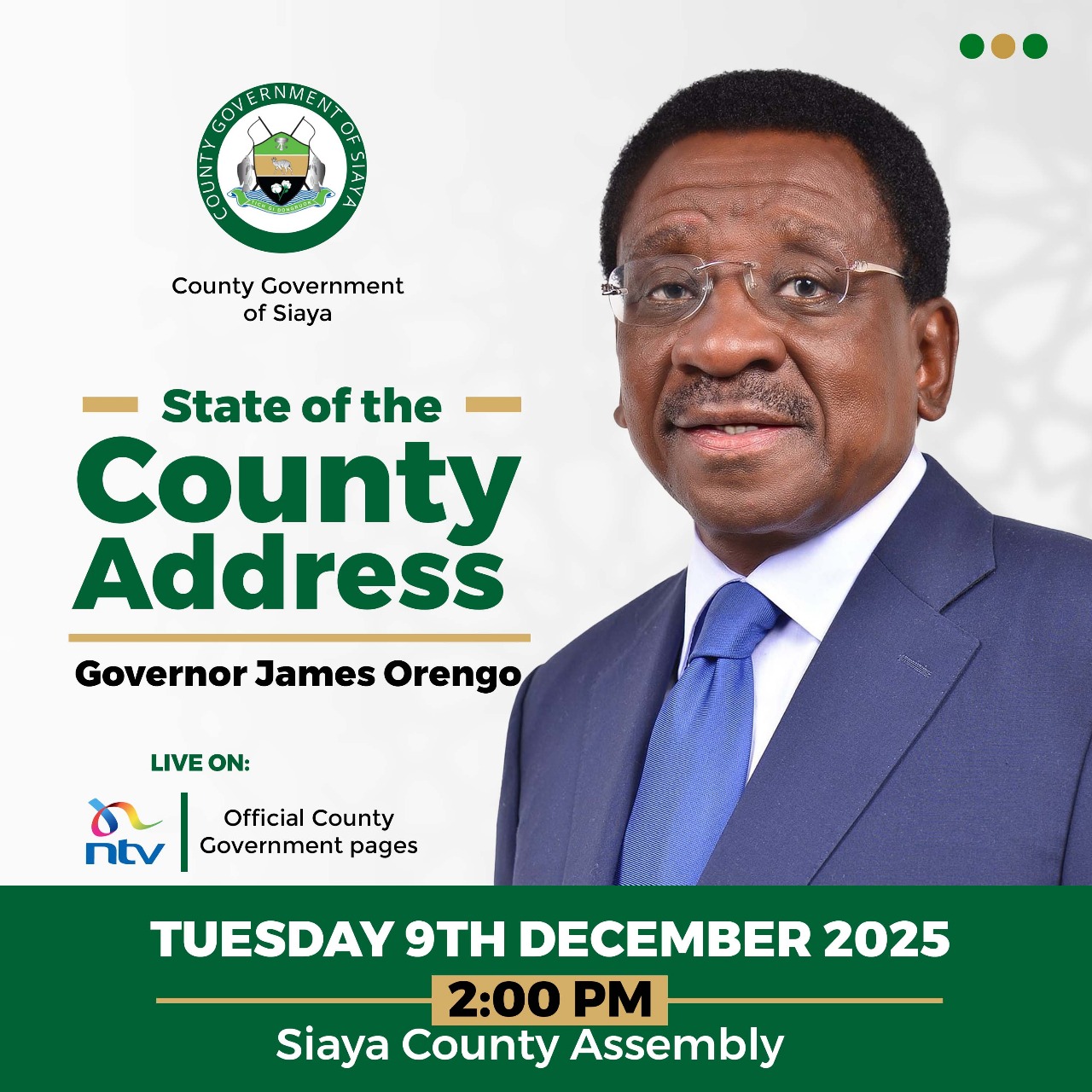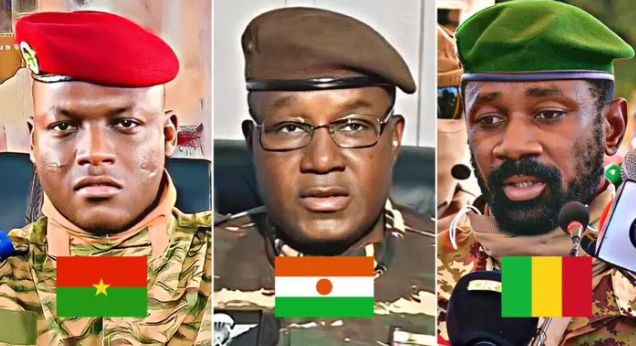From left: Presidents Captain Ibrahim Traore of Burkina Faso, Niger’s General Abdourahmane Tchiani and Colonel Assimi Goïta of Mali. (Source: Business Insider)
Landlocked Mali, Niger and Burkina Faso lack direct access to the sea, presenting unique challenges in their future economic relationships.
Nigeria’s imports from Niger have been on the rise, reaching $33.4 million in 2022 from $25.7 million in 2021.
Mali witnessed a substantial surge in exports to Nigeria, posting 246% increase to $17.4 million in 2022.
In a seemingly synchronized turn of events, the West African nations of Niger, Mali, and Burkina Faso have declared their exit from the Economic Community of West African States (Ecowas).
This move announced in a joint statement on Sunday by the junta leaders of the three landlocked Sahel nations, cited their “sovereign decision” to sever ties with Ecowas without delay.
The decision by Mali, Niger, and Burkina Faso to withdraw from the Ecowas raises concerns about potential lost opportunities in trade with Nigeria, the largest economy in Africa, as well as with other countries within the 16-member bloc.
Founded in 1975 as a free trade area, Ecowas can be categorized into two groups. The first group comprises the eight members of the West African Economic and Monetary Union (UEMOA): Benin, Burkina Faso, Cote d’Ivoire, Guinea Bissau, Mali, Niger, Senegal, and Togo. These nations have adopted the CFA franc as a common currency.
The second group consists of non-UEMOA members, including Cape Verde, Ghana, Guinea, The Gambia, Nigeria, Liberia, and Sierra Leone.
The trade opportunities at stake as Ecowas falters
According to data from the International Trade Centre, Nigeria’s imports from Niger witnessed an increase, reaching $33.4 million in 2022 from $25.7 million in 2021.
However, the trend was different for Mali, with Abuja’s imports declining to $166,000 from $180,000. Burkina Faso experienced a noteworthy shift, as Nigeria’s imports surged to $40,000 in 2022, reflecting a remarkable 566 per cent increase from the $6,000 reported in 2021.
In terms of exports, the statistics reveal a mixed scenario. In 2022, Niger exported goods worth $192.9 million to Nigeria, showing a slight drop from the $197.3 million reported a year earlier.
Mali, on the other hand, witnessed a substantial surge in exports to Nigeria, experiencing a 246 per cent increase to $17.4 million from $5.03 million in 2021.
In contrast, Burkina Faso faced a significant downturn in its exports to Nigeria, with figures dropping to $13.6 million in 2022, down from the $40.2 million reported earlier.
These fluctuations in trade volumes highlight the intricate dynamics that may be at risk as the three Sahelian nations choose to go solo after severing their membership in the regional bloc.
Their withdrawal also introduces uncertainties and disruptions to the existing trade relationships, impacting economies and populations on both sides.
Mali, Niger and Burkina Faso main exports
The decision by Mali, Niger, and Burkina Faso to exit Ecowas holds particular significance given their landlocked geographical status withing the region.
Unlike their fellow member countries, these three nations lack direct access to the sea, presenting unique challenges and considerations in their economic relationships.
With a combined landmass of approximately 2,781,092 km2, constituting 54.38 percent of the total land area of Ecowas, Mali, Niger, and Burkina Faso engage in pretty similar trade activities.
Burkina Faso relies significantly on a single agricultural product, cotton, dominating its export portfolio to various regions. Within the bloc, Burkina Faso’s exports also include a limited range of food and tobacco products, including cigarettes, sugar, and vegetable oil.
For Mali, a nation grappling with armed militants to the north, live animals are its primary export items to Ecowas.
In the case of Niger agricultural products take center stage in its exports, with live animals and onions playing a prominent role.
The landlocked status of Mali, Niger, and Burkina Faso underscores the importance of regional cooperation, trade agreements, and the development of efficient transport corridors to ensure the smooth flow of goods across borders.
Why Mali, Niger and Burkina Faso chose to exit Ecowas
The primary reason as stated by their leaders, is the imposition of what they deem as “inhumane” sanctions by the regional bloc, which has been incessantly urging them to return to democratic rule.
In their joint statement, the junta leaders claim that Ecowas has strayed far from the noble ideals envisioned by its founding fathers and the principles of Pan-Africanism, signaling a profound departure from the vision that initially brought the nations together nearly 50 years ago.
Additionally, they assert that the bloc is now allegedly operating “under the influence of foreign powers.”
In the aftermath of the coup that ousted President Mohamed Bazoum in July, Ecowas imposed sanctions on Niger. The bloc’s measures included the closure of the country’s air and land border points with neighboring economies.
Additionally, Ecowas took the unprecedented step of freezing Niger’s state assets held within member countries while also preventing the junta from engaging in transactions with organizations and institutions affiliated with Ecowas.
As a direct consequence, Niger found itself effectively barred from engaging in trade with neighboring countries such as Benin and Nigeria, Africa’s largest economy.
This blockade has resulted in a significant surge in food prices within Niger, amplifying the economic challenges faced by one of the world’s most impoverished nations.
While Burkina Faso has been under army Captain Ibrahim Traore since October 2022, Mali has experienced military rule following two coups in 2020 and 2021.
The decision to withdraw from Ecowas was prompted by the economic bloc’s delegation failing to reach Niger on Thursday for mediation talks, citing a malfunctioning aircraft. In response, the junta’s prime minister criticized the bloc for what was perceived as a lack of good faith in the matter.

